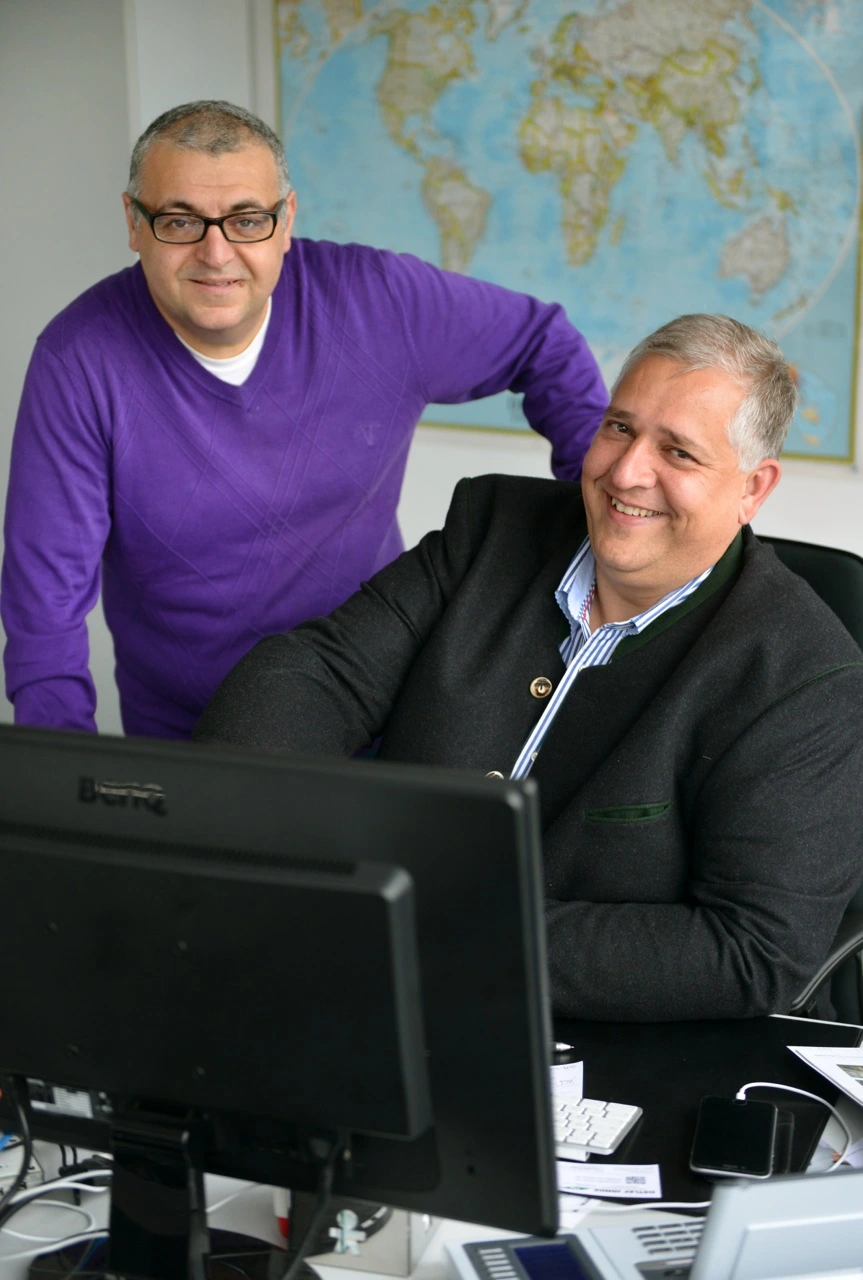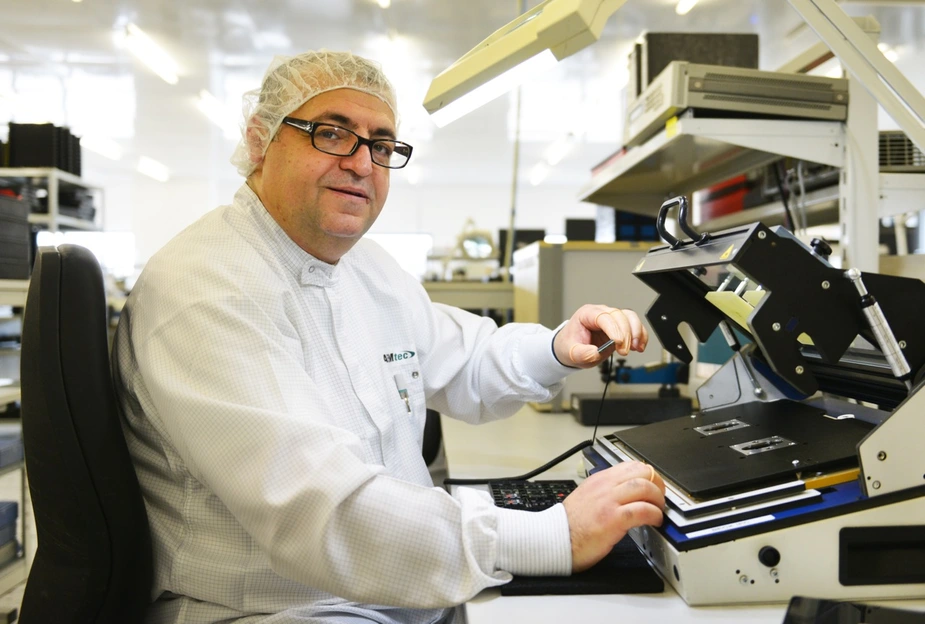Workbench and Willkommenskultur
The Syrian refugee Basem Wabeh works for AEMtec GmbH
In Adlershof and throughout Berlin, many are making an effort to support refugees. One important mission of the Science City in Adlershof is to provide jobs to the newcomers. Jan Trommershausen, manager of the company AEMtec, has had great experiences with his staff from Syria.
Basem Wabeh looks tired, but happy. He has been working shifts in manufacturing at AEMtec GmbH in Adlershof for a few weeks now. The company and its 160 employees produce microelectronics used in medicine as well as data and telecommunication. This is a new line of work for Wabeh, but the Syrian national is well-prepared. A mechanical engineer by training, he was the production manager of a consumer goods factory in his home country and responsible for 600 employees. “A lot of things are new to me here,” says the 43-year-old. “But I finally have a job, which is good.”
Wabeh is currently living in a one-room flat in Adlershof with his wife and three daughters, who are four, eight, and ten years old. Several refugee shelters have been set up in Adlershof in the past few months and various initiatives are taking care of the newcomers. Among those who seek to help refugees to enter the job market are WISTA-MANAGEMENT GMBH, the Humboldt-Universität, and volunteers from student and church groups. Activities include the monthly “International Evening” which brings together refugees and potential employers.
Jan Trommershausen was one of the first to help the refugees. The AEMtec manager met Wabeh at a local neighbourhood in Steglitz-Zehlendorf that he created himself. “We became friends, Basem’s German improved very quickly, so I decided to give him a job.” My employees were very committed and gave their new colleague a warm welcome. “My employees are raving about Basem." Cultural prejudices are quickly overcome when the abstract notion of “the refugee” is replaced with real live people. Trommershausen also took on a Syrian communications engineer as an intern for a few weeks. “It turned out the language barrier was still too high for this colleague,” he tells us. However, once the young man completed additional language courses, he will get a fresh chance. “We want to contribute to integrating these people as a company. Many refugees lose their sense of self-esteem on their journey.”
Basem Wabeh avoids speaking about the turbulent journey on a boat from Egypt to Italy. He would rather forget those ten days which he spent with 200 other refugees, without water and food, on a tiny ship in the Mediterranean. “I had no choice back then,” he tells us. After a bomb hit his daughter’s school, he fled his suburban home in Damascus to go to Egypt. The family struggled to survive in Cairo for more than a year until the revolutionary turmoil also made their life there unbearable. Once he arrived in Germany, Trommershausen helped him to reunite with his family. Wabeh’s daughters still suffer from trauma: “They wake up at night when they hear noises like fireworks – they think they’re shots or bombs.”
He hopes his girls can go back to leading a normal life in autumn, when they go back to kindergarden and school. Wabeh is worried about the course of events in Syria: “I don’t think we can go back to our country any time soon. I want my children to have opportunities here.” His dream for the future: to learn German and to get his qualifications officially recognised. – “so I can go back to working as a proper engineer”.
Especially the refugees from Syria are extremely motivated and ready to work, according to Trommershausen. Many bring vocational skills with them and their knowledge of Middle Eastern culture might also open new markets. “I can only recommend that other companies take a look at these Syrians.”
By Claudia Wessling for Adlershof Journal
www.aemtec.de

